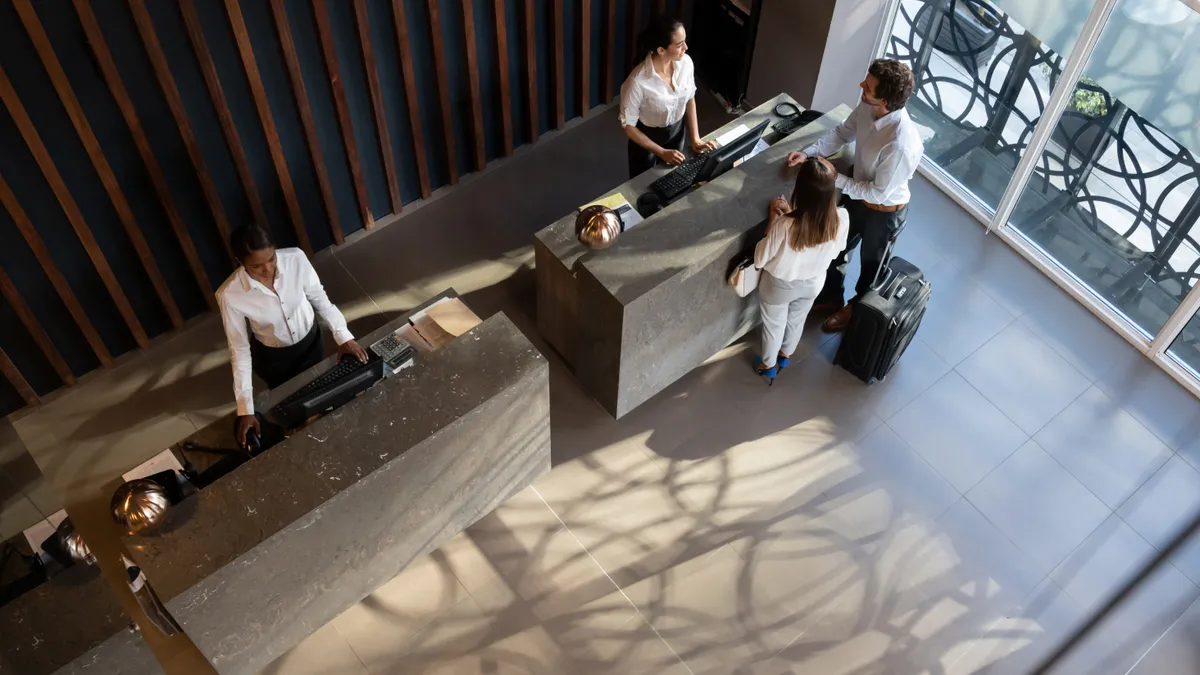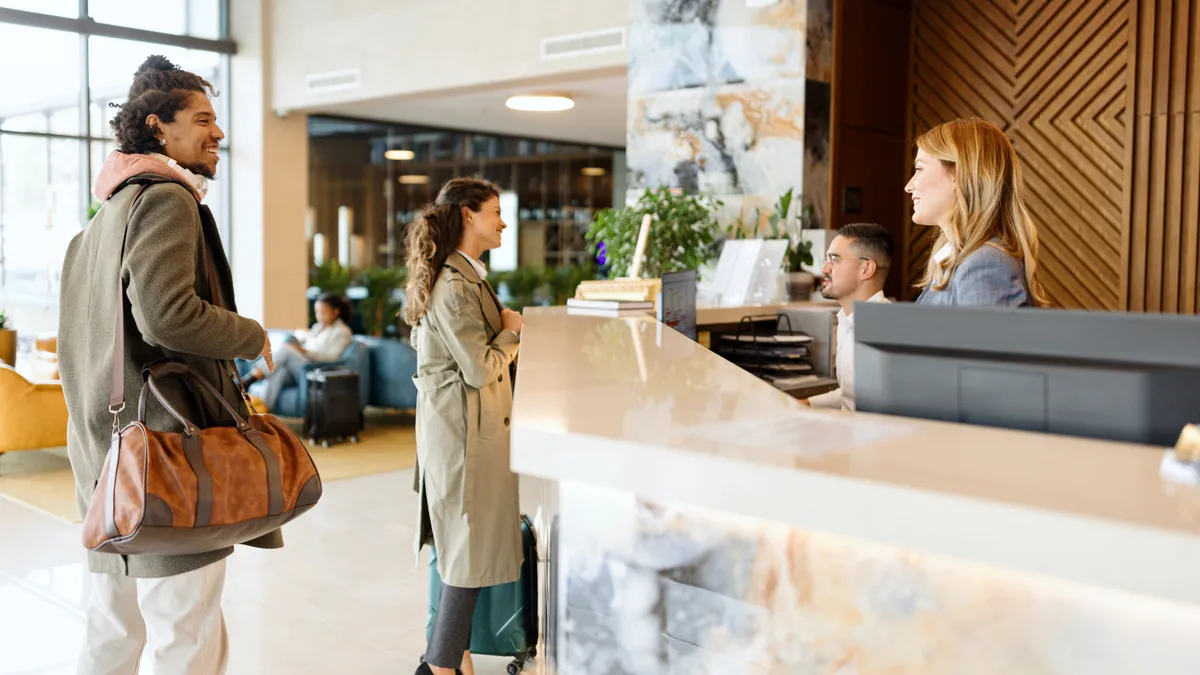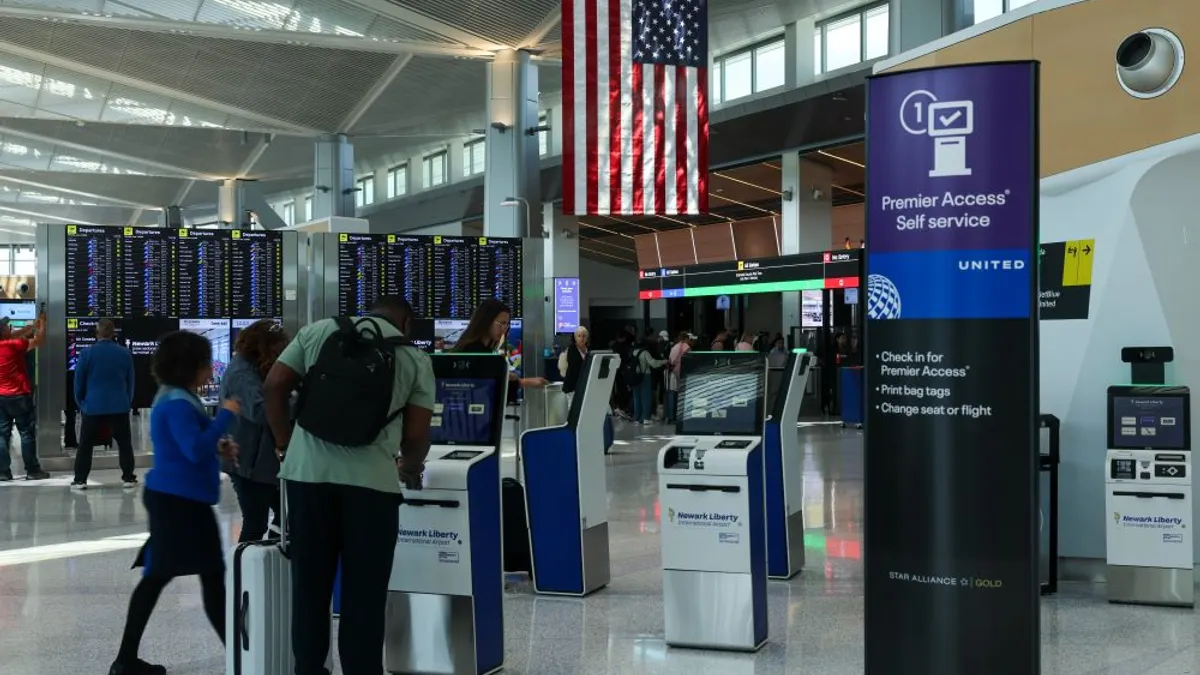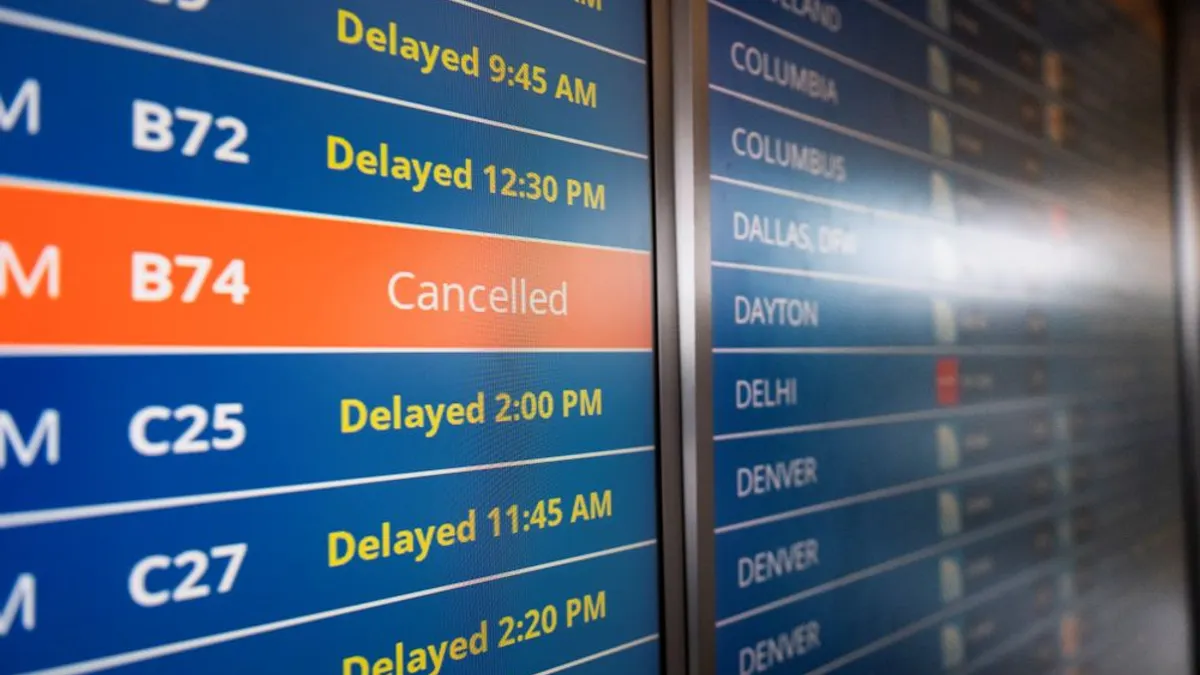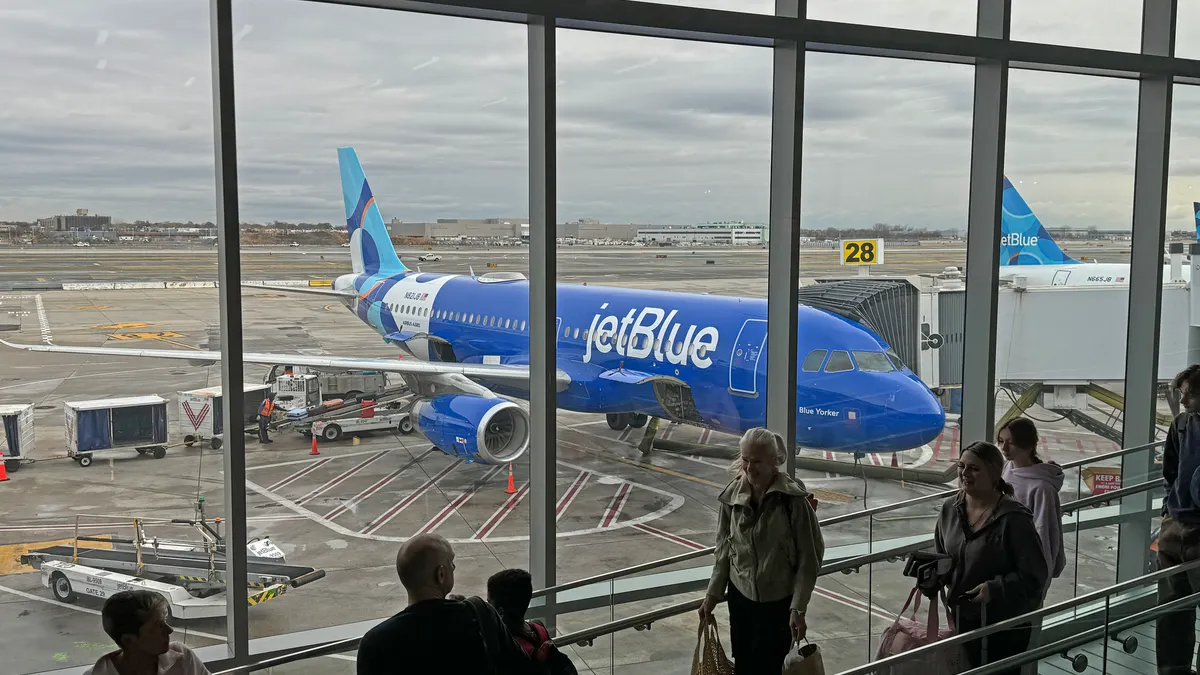One year ago this week, the American Hotel & Lodging Association appointed Rosanna Maietta as president and CEO. In this role, Maietta was tasked with leading one of the country’s largest hospitality industry associations, representing roughly 32,000 member properties, as well as more than 1,000 corporate members and top hotel companies.
Maietta took over for Kevin Carey — currently chief operating officer of AHLA and president and CEO of the association’s charitable arm AHLA Foundation — who briefly led AHLA as interim president and CEO after the previous leader, Chip Rogers, resigned in March 2024. She was seasoned in the workings of AHLA, having previously worked at the organization for roughly eight years from 2014 to 2022 in various roles, including president and CEO of AHLA Foundation.

Despite her familiarity with the company, her first year at the helm brought unique challenges, as broader economic uncertainty caused trouble for many of her constituents. However, headwinds are always something people in the top seat must face, Maietta told Hotel Dive in a retrospective interview.
Reflecting on her first year as AHLA president and CEO, Maietta shared her greatest accomplishments, what surprised her the most and how AHLA plans to unite the hotel industry through leadership and advocacy in 2026.
This interview has been edited for length and clarity.
HOTEL DIVE: At this year’s Lodging Conference, executives said the hotel industry is challenged by its own “fragmentation,” and called on associations, including AHLA, to be a unifying voice for the industry. How do you handle that responsibility?
ROSANNA MAIETTA: That has been one of my core priorities this year, to ensure that we are uniting the industry under one voice, under AHLA. We are doing this for all segments, not just owners but brands, management companies and the broader ecosystem of the travel and hotel universe, because the challenges are many and multiplying. It is harder to do business today as a hotel industry, and yet, we have such an incredible story to tell.
If you think about the depth and breadth that our industry represents, we have at least one hotel in every congressional district. Yet, when it comes to local lawmakers, state lawmakers and members of Congress, the awareness and understanding of the impact that the hotel industry provides is sometimes lost because our industry is so complex. One of our priorities internally has been to better engage our members in telling that story.
It's something that we're going to double down on in 2026 and beyond because it will take all of us to ensure that we are consistently telling that story and that we're being methodical about reaching all leaders in the legislative and regulatory space, so they have a better understanding of the importance of ensuring our industry is thriving.
What other challenges is the hotel industry facing currently?
It has been a very uncertain year when it comes to running a business, particularly in the hotel industry. A lot of our owners — small business and franchise owners — have had a really challenging time.
The uncertainty around tariffs is causing a pause, and that’s never good for business. Similarly, the ripple effects of tariffs and the impact on inbound travel and government business, both of which have slowed, have been challenging.
Group business has also been inconsistent this year, and a lot of that fuels our industry. But, what I'm excited about is the fact that our industry is resilient. We have been through a lot, and we are going to get through this. And certainly, if you look ahead to 2026, there’s a lot of excitement and energy around the World Cup, America’s 250th anniversary and the role that the hotel community plays in those events. So, we’re optimistic about 2026.
Looking back, what accomplishment are you most proud of from the last year?
At the federal level, passing the landmark tax provisions was critically important to our industry. Without the passage of some of those important provisions, our industry would have seen tax increases upwards of 30%, which in this economic climate would have been devastating. It was a two-year effort, and a lot of our members were involved in that, so I’m really pleased to see how we activated some of our membership in different segments to participate in that lawmaking process. At the state level, we were able to level the playing field in seven states with short-term rentals, achieving tax parity.
Additionally, I’m proud of our work around human trafficking prevention. AHLA and AHLA Foundation have been such important leaders in this space, on prevention, awareness and training. We've married the industry reputation and leadership with the advocacy component, by promoting and introducing legislation in several cities and states. That is something that you’re going to continue to see us doing as we bring in the rest of the travel sector as well and bring them up to our standards of training and prevention.
What’s one thing that surprised you about the CEO role?
You’re always facing headwinds. I think part of the job is just leading during those times of crisis, whatever those may be. But look, AHLA is a well-oiled machine, and it was wonderful to come back and really see how the team operates.
It’s not necessarily a surprise, but our industry really is innovating — constantly so. Seeing our members come together to talk about new opportunities as well as the challenges ahead has been a good reminder that we’re always evolving.
Did you receive any words of wisdom from your predecessors?
I heard from a lot of former mentors of mine, especially some of AHLA’s board members and our executive committee members and people that I had worked with for a long time during my first stint at AHLA. A lot of them focused on the opportunities that our industry provides and that incredible story we have to tell.






